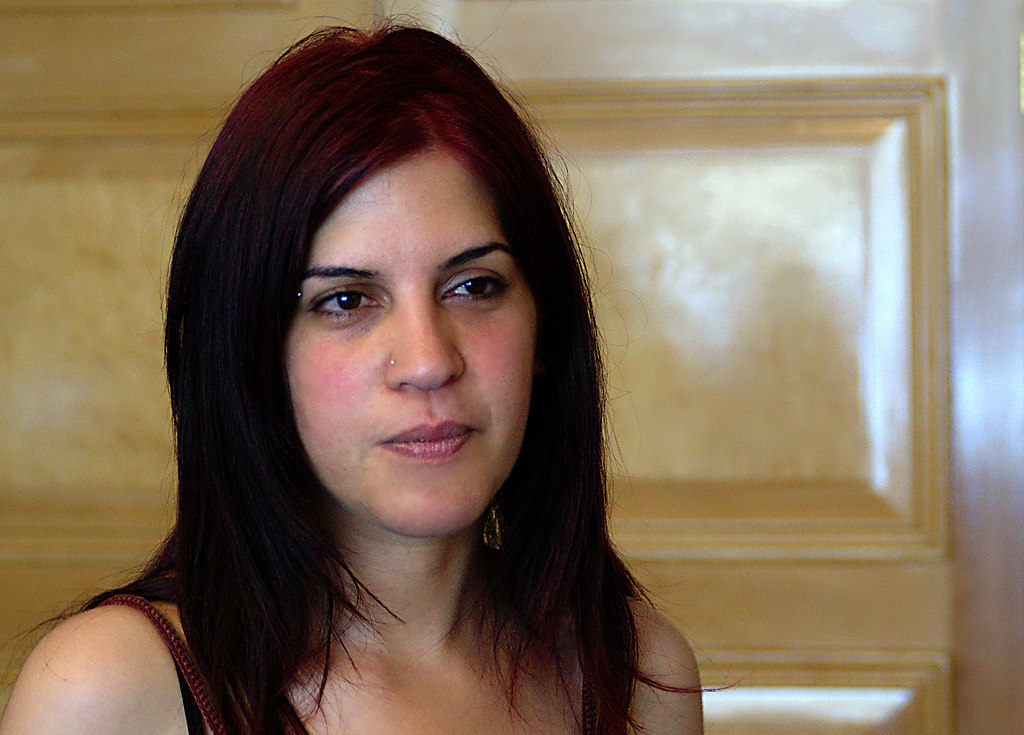TUNIS — Tunisia is a nation of young women. They write books, tell stories, teach in universities, write on blogs, organize activist networks, protest on the streets, and work both in and out of the home. In the winter of 2014, during discussions over the approval of the new constitution, women formed an army of volunteers that took to the streets to fight for the inclusion of gender equality. The goal was to break from the more ambiguous "complementarity" formulation between men and women in the previous constitution, and oppose the introduction of Sharia law, polygamy, and unequal rights to family inheritance. But there were others — and other women — who did and do not agree on all elements of this agenda.
"I come to parliament every day because there's still a lot left to do," says Imen Ben Mohamed, 31, a former member of the Constituent Assembly and current member of parliament for the Islamist Ennahda party, where she holds a seat in the Rights, Freedom and Foreign Affairs Commission. She wears a blue silk hijab and a hamsa, an amulet necklace, around her neck with a touch of kajal eyeliner around her eyes.
"We've made great strides in freedom of expression and civil rights," she says. "Now is the time to focus on social justice and the economy, otherwise we won't be able to stop our youth from running into the arms of the Islamic State's caliphate."
In the last two years, more than 6,000 young Tunisians are believed to have left the country to fight for ISIS in Syria, Iraq and Libya, and another 15,000 have been put under surveillance to prevent them from attempting to leave. "They're usually 24 or 25 years old, their problem is that they lived too long under the dictatorship (of Zine El Abidine Ben Ali), and are full of anger, hatred, and ignorance," says Imen. "They wind up turning to jihad out of desperation."
For Imen, Islam is not the problem, and she rejects accusations often leveled at her party for defending radical Salafist preachers. "Ennahda is an Islamic party that fought for the listing of Ansar al-Sharia as a terrorist organization and for putting the phrase "freedom of conscience" front and center in the Tunisian constitution, ahead of "freedom of religion," she says. Imen stresses the role of religious leaders in shaping modern Tunisia, explaining it wasn't only the country's founder, Habib Bourguiba, who laid the foundations for the country's democracy.
"My dream is to become Tunisia's first female president," she says with a chuckle.

Imen Ben Mohamed has her say — Photo: Facebook page
Police protection
Lina Ben Mhenni shakes her head at Imen's ideas and ambitions. She's seated at a table in the Café de Theatre in the bustling Bourguiba Avenue in central Tunis, wearing several rings on her fingers, black polish on her long nails, and nose and eyebrow piercings. "It's not true," she says. "Ennahda is an Islamic party and is working towards a progressive and creeping Islamization of the country."
Lina was a university lecturer before her contract expired, and is now one of Tunisia's best-known bloggers, with over 244,000 Twitter followers and almost 95,000 on Facebook. She was put under constant protection by a police unit after receiving death threats from terrorist groups.
"The government fills universities with useless debates on wearing the hijab and on gender equality, but this is just their attempt to distract popular attention from Tunisia's real problems," she says. "There were people protesting for the right to work and justice and they were beaten by the police, this political class has betrayed Tunisians and hasn't abandoned the old ways of Ben Ali's regime."
Lina now campaigns to provide books to prison inmates, an effort partly inspired by her father's imprisonment during the rule of Ben Ali. "I visited several prisons and all the prisoners can do is read, but do you know what kind of books they have in libraries? Fundamentalist religious texts that incite hatred," she says.

Lina Ben Mhenni in Tunis — Photo: Wikipedia
Lina launched a book collection page on Facebook and received donations from across Europe, bringing in around 10,000 books including novels, essays, and anthologies. "Often a young man ends up in jail for smoking cannabis, then after his release he returns for terrorism charges," she says. "The temptation of jihad grows in Tunisia's jails and that's where we must fight it, but even (governing secularist party) Nidaa Tounes pretends not to notice."
Fadhel Moussa, a male lawyer and former member of the Constituent Assembly, says that Tunisian women are cultured, emancipated, and self-aware, and hold the potential for far more than just their own personal self-realization. "They are a pillar and guarantee of social order," he says. "If they can't protect our youth from the caliphate then who else can?"





